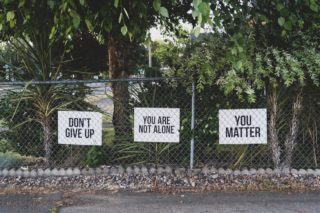What are Benzo Medications?
Benzodiazepines are medications that can calm or sedate the body. Benzo medications are psychoactive drugs that reduce brain activity. It is similar to a tranquilizer. Benzo medications act in much the same way alcohol does. They affect the brain in the same way.
Neurotransmitters are chemicals in the brain that allow the brain to communicate with the body. These messages can either stimulate or calm the body. Benzos block the transmission of reception between neurotransmitters than pass along stimulating feelings.
Benzo medications have a very quick onset but they do not last very long. The feeling of euphoria can come along in the first 30 to 60 minutes. As the feeling wears off quickly, users may want to use more and more to increase that euphoric, relaxing feeling.
Benzodiazepines include medications like alprazolam (Xanax®), chlordiazepoxide (Librium®), clorazepate (Tranxene®), diazepam (Valium®), halazepam (Paxipam®), lorzepam (Ativan®), oxazepam (Serax®), prazepam (Centrax®), and quazepam (Doral®). Clonazepam (Klonopin®).
What are Benzo Medications For?
Benzo medications are often used for anxiety disorders. They can help calm the body and mind by slowing the messaging between anxiety neurotransmitters and the body. A doctor may prescribe benzo medication for panic attacks, restless leg syndrome, panic, and seizures.
Doctors may also prescribe some benzodiazepines for alcohol abuse disorder patients. Alcohol abuse is a serious disease that causes much damage. However, quitting cold turkey isn’t an option with alcohol dependency. This can shock the body too quickly and lead to fatal complications.
To safely wean someone from alcohol, they are given benzo medications to slowly wean the body off the addiction one day at a time. This will minimize the effects of withdrawal without offering the user even more alcohol
However, no matter why patients use benzos, there is a high likelihood for dependence with continuous use. Benzo medications are for short-term use. If you continue to use them for a long period, you are at a very high risk for developing dependency.
Benzos can be a very effective medication in calming anxiety and panic disorders and for helping with alcohol withdrawal. However, you should only use what your doctor prescribes. Taking more benzos than you need or increasing the dose on your own is very dangerous. Misusing benzos also includes combining benzo medications with other substances. This can be very dangerous and put you at. Very high risk for a fatal overdose.
What is Benzo Abuse?
Benzo abuse is when patients are taking far more benzo medication than their prescription allows for. If you are filling prescriptions from different doctors in different pharmacies, you are likely suffering from benzo abuse. Taking more benzo that your doctor recommends is dangerous.
If you are combining benzo medications with substances like opioids, alcohol, or illicit drugs, you are likely abusing benzos. Benzo abuse may also include taking benzos in a different way. For example, chewing, snorting, or injecting benzo medications is a form of abuse. This is not how you should take your prescription of benzo medication.
Benzo abuse also includes patients who take benzo regularly. If you are taking benzo medications for longer than four to six weeks, you are either abusing it or developing an addiction to it. Benzo medications are only necessary for a short-term period.
If you are taking benzo medications, you should always follow the recommendations of your doctor and your pharmacist. Do not make modifications to your dosage on your own. If you are purchasing benzos on the black market, you are at serious risk. These illegal medications may be combined with other things and you could suffer an overdose.
Side Effects of Benzo Use and Abuse
Benzo use and abuse can have various side effects. The side effects of benzo use may be mild if you are using the medication in the short term, as your doctor is advising you to. Here are some of the side effects of benzo use:
- Fatigue
- Sleepiness
- Confusion
- Dizziness
- Worse anxiety
- Worse depression or onset of depression
- Decreased coordination
If you are experiencing some of these mild symptoms after starting benzo medications, this can be normal. The symptoms should subside. If they do not improve or if they worsen, you should consult with your doctor right away. If you have only taken a few low doses of benzo medication, you can stop the medication and see your doctor for help.
If you have been taking benzos for a long time or are taking a high dose and are experiencing these symptoms, quitting benzos may be unsafe. You may need to do so slowly. Again, the best course of action here is to consult with your doctor or pharmacist regularly to ensure you get off them slowly. You may be better off with another medication instead.
If you are abusing benzo medications, the side effects may be much more serious. Here are some of the side effects of benzo abuse:
- Behavioral changes
- Mood swings
- Delirium
- Suicidal thoughts
- Seizures
- Vision problems
- Extreme anxiety
- Panic
- Trouble breathing
If you are suffering from severe side effects of benzodiazepines, you are likely abusing this medication. You must seek emergency care immediately. If you experience severe symptoms after combining benzos with alcohol, opioids, or other substances, head to your local ER right away or call 911.
How to Quit Benzo Medications
If you are suffering from benzo abuse, you should seek help from a professional substance abuse rehabilitation center. Quitting benzo medications is a complex process. Benzos work in the same way alcohol does in terms of how it affects the brain. You cannot quit cold turkey, especially if you have been taking big doses for a long time.
The state of shock withdrawal will send your body into could be potentially fatal with a cold turkey method. Instead, you have to slowly wean off of benzo medications. In some cases, a doctor may prescribe alternate medications to take while you wean from benzos.
To be sure you quit benzo medications safely, do so under the supervision of a doctor or a rehab center like Windward Way Recovery. Both inpatient and outpatient treatment programs can help you safely lower your tolerance and break free from your addiction to benzo medications.
When you make the decision to finally kick your habit, Windward Way Recovery will be there for you. Our goal is to help you wean in a safe environment. If you are hoping to support a loved one through benzo recovery, contact us today. We can help you better understand your addiction and how to get and stay sober.
Benzo Withdrawal Symptoms
If you are lowering your benzo medication dosage safely, you will still experience some withdrawal side effects. The most common benzo withdrawal side effects most people face are:
- Insomnia
- Anxiety
- Depression
- Mood swings
- Concentration difficulties
- Insomnia
- Lower sex drive and performance
Withdrawal symptoms can be more severe for those with high tolerance and high usage of benzo medications. More serious withdrawal side effects can include:
- Severe aches and pains
- Muscle spasms
- Hyperventilation
- Sweating
- Weight loss
- Feelings of something crawling on your skin
- Hypersensitivity to feelings and sounds
- Nausea
- Vomiting
- Panic attacks
- Seizures
If you experience very severe symptoms or find your symptoms to be getting worse instead of better, seek medical attention immediately. This is another reason why it is a good idea to detox from benzo medications under the supervision of a rehab care specialist in a facility that can handle your symptoms.
If you are helping someone you love through benzo withdrawal, keep the number of local emergency rooms and help centers handy. Call out for help if your patient is suffering greatly or you fear that the symptoms are becoming dangerous. In the event of a seizure, call for medical backup right away.
If you truly want to help someone as they wean off benzos, you can also help them find outlets for their emotions and ways to treat their physical symptoms. Start by ensuring they get a healthy diet of whole foods and proteins. Make sure they hydrate regularly. You can also help them follow a regular bedtime routine so they can manage the sleep disturbances and eventually get proper sleep.
Eating well and sleeping well are important for managing withdrawal. Exercise is another great way you can offer your loved one support. You can exercise with them to get them moving. This can be very beneficial to the recovery process and also help manage and minimize withdrawal symptoms. Be ready to hang in there for a few months because the withdrawal process doesn’t happen overnight.
Where to Get Help for Benzo Abuse?
If you are struggling with benzo abuse disorder, know that you are not alone. Prescription medication addiction affects millions of Americans every year and is on the rise every day. You can find a way to recover from benzo abuse and stay sober from now on.
Benzo abuse is a complex addiction. The medications directly affect your brain and induce cravings. Your body can develop dependency very quickly. If you are looking for a way to finally get and stay sober, Windward Way Recovery can help.
Start by calling us today to see how we can help you begin your journey to recovery. From detox to therapy, we can help you safely say goodbye to your dependency on benzo medications. Rehabilitation centers have expert staff to help you in every way. From understanding your disease to treating it, we can help.
If you know a loved one who is suffering from benzo abuse or any other substance abuse disorder, we’re here for you, too. We can help you understand the complexities of addiction and give you the tools you need to support your loved one through recovery.
Detox is the first step but staying sober will require your love and support as well. Those who are surrounded by a strong support circle are much less likely to relapse. If you don’t know how to get started or where to turn, remember that Windward Way Recovery is here for you.
Treatment for Benzo Abuse
Benzo abuse treatment can vary for each individual. The key to success is finding the treatment strategy that works best for each individual’s needs. We offer group therapy, individual therapy, art therapy, nature therapy, and more. In most cases, a combination of various therapies is most beneficial to substance abuse disorder patients.
Detoxing from benzo medications is step one. And it can be challenging. But you can do this. Cutting benzos out of your life for good, slowly but surely, can open you up to the healing and forgiveness you need to move forward. Once you manage to overcome the physical hurdles of withdrawal, you will need to deal with the emotional ones.
Depression and anxiety can become worse in the first few months after withdrawal. Seeking therapy can help you manage those symptoms and continue your path to healing and recovery. If you are experiencing suicidal thoughts of extreme panic, anxiety, or depression, we can help. Treating these issues is an important step in recovering and staying sober.
A nurturing and supportive environment can help you regain control of your life and control over your addiction. Therapy can often uproot deep-seeded issues that may be responsible for your drug abuse disorder. Getting to the bottom of these issues and finally resolving them is crucial to your recovery.
Substance abuse disorder is complex and so is the treatment for it. But it can happen. You can do it. And we can help you.






